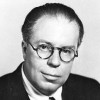This liberty will look easy by and by when nobody dies to get it.
Maxwell Anderson (1888-1959) American playwright, author, poet, reporter, lyricist
Valley Forge, Act III, final sentence [George Washington] (1937)
The man who does not do his own thinking is a slave, and is a traitor to himself and to his fellow-men.
Robert Green Ingersoll (1833-1899) American lawyer, agnostic, orator
“The Liberty of Man, Woman, and Child” (1877)
(Source)
These are the times that try men’s souls. The summer soldier and the sunshine patriot will, in this crisis, shrink from the service of their country; but he that stands it now, deserves the love and thanks of man and woman.
Books won’t stay banned. They won’t burn. Ideas won’t go to jail. In the long run of history, the censor and the inquisitor have always lost. The only sure weapon against bad ideas is better ideas.
Whitney Griswold (1906–1963) American historian, educator [Alfred Whitney Griswold]
“A Little Learning,” speech, Phillips Academy, Andover (1952, Spring)
(Source)
Why should man be afraid to think, and why should he fear to express his thoughts? Is it possible that an infinite Deity is unwilling that a man should investigate the phenomena by which he is surrounded? Is it possible that a god delights in threatening and terrifying men? What glory, what honor and renown a god must win on such a field! The ocean raving at a drop; a star envious of a candle; the sun jealous of a fire-fly.
Robert Green Ingersoll (1833-1899) American lawyer, agnostic, orator
“Heretics and Heresies” (1874)
(Source)
LONDO: There comes a time when you look into the mirror, and you realize that what you see is all that you will ever be. Then you accept it, or you kill yourself. Or you stop looking into mirrors.
I believe what really happens in history is this: the old man is always wrong; and the young people are always wrong about what is wrong with him. The practical form it takes is this: that, while the old man may stand by some stupid custom, the young man always attacks it with some theory that turns out to be equally stupid.
Already I had learned from thee that because a thing is eloquently expressed it should not be taken to be as necessarily true; nor because it is uttered with stammering lips should it be supposed false. Nor, again, is it necessarily true because rudely uttered, nor untrue because the language is brilliant. Wisdom and folly both are like meats that are wholesome and unwholesome, and courtly or simple words are like town-made or rustic vessels — both kinds of food may be served in either kind of dish.
[Iam ergo abs te didiceram nec eo debere videri aliquid verum dici, quia eloquenter dicitur, nec eo falsum, quia incomposite sonant signa labiorum; rursus nec ideo verum, quia impolite enuntiatur, nec ideo falsum, quia splendidus sermo est, sed perinde esse sapientiam et stultitiam sicut sunt cibi utiles et inutiles, verbis autem ornatis et inornatis sicut vasis urbanis et rusticanis utrosque cibos posse ministrari.]
Augustine of Hippo (354-430) Christian church father, philosopher, saint [b. Aurelius Augustinus]
Confessions, Book 5, ch. 6 / ¶ 10 (5.6.10) (c. AD 398) [tr. Outler (1955)]
(Source)
(Source (Latin)). Alternate translations:
Of Thyself therefore had I now learned, that neither ought any thing to seem to be spoken truly, because eloquently; nor therefore falsely, because the utterance of the lips is inharmonious; nor, again, therefore true, because rudely delivered; nor therefore false, because the language is rich; but that wisdom and folly are as wholesome and unwholesome food; and adorned or unadorned phrases as courtly or country vessels; either kind of meats may be served up in either kind of dishes.
[tr. Pusey (1838)]
Of Thyself, therefore, had I now learned that neither ought anything to seem to be spoken truly, because eloquently; nor therefore falsely, because the utterance of the lips is inharmonious; nor, again, therefore true, because rudely delivered; nor therefore false, because the language is rich; but that wisdom and folly are as wholesome and unwholesome food; and adorned or unadorned phrases, as courtly or country vessels: either kind of meats may be served up in either kind of dishes.
[ed. Shedd (1860)]
From Thee, therefore, I had now learned, that because a thing is eloquently expressed, it should not of necessity seem to be true; nor, because uttered with stammering lips, should it be false nor, again, perforce true, because unskillfully delivered; nor consequently untrue, because the language is fine; but that wisdom and folly are as food both wholesome and unwholesome, and courtly or simple words as town-made or rustic vessels, -- and both kinds of food may be served in either kind of dish.
[tr. Pilkington (1876)]
I had learned, then, from Thee, that neither ought a thing to be regarded as true because it is eloquently uttered, nor on the other hand false because awkwardly expressed; neither is it true because the diction is ungraceful, nor false because clothed in glowing language; but that truth and folly are like wholesome and hurtful food, and language ornate and bald like fine and plain dishes, and either kind of meat may be served in either kind of dish.
[tr. Hutchings (1890)]
Already I had learned from Thee, that nothing ought to seem true because it is well expressed, nor false because the word-symbols are inelegant; yet again, that nothing is true because rudely delivered, nor false because the diction is brilliant; but that wisdom and folly are like meats that are wholesome or unwholesome, and that either kind of meat can be served up in silver or in delf, that is to say, in courtly or in homely phrase.
[tr. Bigg (1897), 5.6.2]
From You then I learned that a thing was not bound to be true because uttered eloquently, nor false because the utterance of the lips is ill-arranged; but that on the other hand a thing is not necessarily true because badly uttered, nor false because spoken magnificently. For it is with wisdom and folly as with wholesome and unwholesome food: just as either kind of food can be served equally well in rich dishes or simple, so plain or beautiful language may clothe either wisdom or folly indifferently.
[tr. Sheed (1943)]
Already, therefore, I had learned from you that nothing should be held true merely be-cause it is eloquently expressed, nor false because its signs sound harsh upon the lips. Again, I learned that a thing is not true because rudely uttered, nor is it false because its utterance is splendid. I learned that wisdom is like wholesome food and folly like unwholesome food: they can be set forth in language ornate or plain, just as both kinds of food can be served on rich dishes or on peasant ware.
[tr. Ryan (1960)]
But in your wonderful, secret way, my God, you had already taught me that a statement is not necessarily true because it is wrapped in fine language or false because it is awkwardly expressed. I believe that it was you who taught me this, because it is the truth and there is no other teacher of the truth besides yourself, no matter how or where it comes to light. You had already taught me this lesson and the converse truth, that an assertion is not necessarily true because it is badly expressed or false because it is finely spoken. I had learnt that wisdom and folly are like different kinds of food. Some are wholesome and others are not, but both can be served equally well on the finest china dish or the meanest earthenware. In just the same way, - wisdom and folly can be clothed alike in plain words or the finest flowers of speech.
[tr. Pine-Coffin (1961)]
I had now learned this from you: that a thing is not necessarily true for being expressed eloquently, nor necessarily false if the sounds made by the lips are imperfectly pronounced; nor, on the other hand, is a thing true simply because it is expressed in a rough and ready way, nor false because it is uttered in a fine style. For with wisdom and folly the same thing holds good as with wholesome and unwholesome food. You can have silver or earthenware dishes on the table, just as you can have a decorated or undecorated use of language; either kind of food can be served in either kind of dish.
[tr. Warner (1963)]
I believe that because you taught me and I had already learned from you that nothing should be deemed truly spoken because it is eloquently spoken, nor false because the indications of the lips are ill-arranged. Conversely, uncouth expression does not make something true, nor polished delivery make truth false. As with wholesome and unwholesome food, so it is with wisdom and folly, and as with adorned and unadorned language, so good food and bad can be served up in elegant or rustic dishes.
[tr. Blaiklock (1983)]
No matter that we may mount on stilts, we still must walk on our own legs. And on the highest throne in the world, we still sit only on our own bottom.
[Si, avons nous beau monter sur des échasses, car sur des échasses encore faut-il marcher de nos jambes. Et au plus élevé trône du monde, si ne sommes assis que sur notre cul.]
Men and women have been burned for thinking there is but one God; that there was none; that the Holy Ghost is younger than God; that God was somewhat older than his son; for insisting that good works will save a man without faith; that faith will do without good works; for declaring that a sweet babe will not be burned eternally, because its parents failed to have its head wet by a priest; for speaking of God as though he had a nose; for denying that Christ was his own father; for contending that three persons, rightly added together, make more than one; for believing in purgatory; for denying the reality of hell; for pretending that priests can forgive sins; for preaching that God is an essence; for denying that witches rode through the air on sticks; for doubting the total depravity of the human heart; for laughing at irresistible grace, predestination and particular redemption; for denying that good bread could be made of the body of a dead man; for pretending that the pope was not managing this world for God, and in the place of God; for disputing the efficacy of a vicarious atonement; for thinking the Virgin Mary was born like other people; for thinking that a man’s rib was hardly sufficient to make a good-sized woman; for denying that God used his finger for a pen; for asserting that prayers are not answered, that diseases are not sent to punish unbelief; for denying the authority of the Bible; for having a Bible in their possession; for attending mass, and for refusing to attend; for wearing a surplice; for carrying a cross, and for refusing; for being a Catholic, and for being a Protestant; for being an Episcopalian, a Presbyterian, a Baptist, and for being a Quaker.
Robert Green Ingersoll (1833-1899) American lawyer, agnostic, orator
“Heretics and Heresies” (1874)
(Source)
A safe but sometimes chilly way of recalling the past is to force open a crammed drawer. If you are searching for anything in particular you don’t find it, but something falls out at the back that is often more interesting.
FERRETINA, THE WEASEL QUEEN: You know, you’re not like the local villagers.
OTHAR TRYGGVASSEN: Really? Are they all hideous mutants or something?
FERRETINA: What? No!
OTHAR: Sorry. In my line of work it pays to ask.Phil Foglio (b. 1956) American writer, cartoonist
Girl Genius, “Revenge of the Weasel Queen” (21 Jan 2008)
Original comic.
We all have enough strength to endure the misfortunes of others.
[Nous avons tous assez de force pour supporter les maux d’autrui.]
You must have been warned against letting the golden hours slip by. Yes, but some of them are golden only because we let them slip.
James Barrie (1860-1937) Scottish novelist and dramatist
“Courage,” Rectoral Address, University of St. Andrews, Scotland (1922-05-03)
(Source)
The church must be reminded that it is not the master or the servant of the state, but rather the conscience of the state. It must be the guide and the critic of the state, and never its tool. If the church does not recapture its prophetic zeal, it will become an irrelevant social club without moral or spiritual authority. If the church does not participate actively in the struggle for peace and for economic and racial justice, it will forfeit the loyalty of millions and cause men everywhere to say that it has atrophied its will.
Martin Luther King, Jr. (1929-1968) American clergyman, civil rights leader, social activist, preacher
Strength to Love, ch. 6 “A Knock at Midnight,” sec. 3 (1963)
(Source)
Laws can embody standards; governments can enforce laws — but the final task is not a task for government. It is a task for each and every one of us. Every time we turn our heads the other way when we see the law flouted—when we tolerate what we know to be wrong—when we close our eyes and ears to the corrupt because we are too busy, or too frightened — when we fail to speak up and speak out — we strike a blow against freedom and decency and justice.
GLENDOWER: I can call spirits from the vasty deep.
HOTSPUR: Why, so can I, or so can any man;
But will they come when you do call for them?William Shakespeare (1564-1616) English dramatist and poet
Henry IV, Part 1, Act 3, sc. 1, l. 55ff (3.1.55-57) (1597)
(Source)
Restrain yourself, old dame, and gloat in silence. I’ll have no jubilation here. It is an impious thing to exult over the slain.
[ἐν θυμῷ, γρηῦ, χαῖρε καὶ ἴσχεο μηδ᾽ ὀλόλυζε:
οὐχ ὁσίη κταμένοισιν ἐπ᾽ ἀνδράσιν εὐχετάασθαι.]Homer (fl. 7th-8th C. BC) Greek author
The Odyssey [Ὀδύσσεια], Book 22, l. 411ff (22.411) [Odysseus to Eurycleia] (c. 700 BC) [tr. Rieu (1946)]
(Source)
(Source (Greek)). Alternate translations:
Forbear, nor shriek thus, but vent joys as loud.
It is no piety to bemoan the proud.
[tr. Chapman (1616)]
Hold, said he, within
Your joy, and let it not appear in vain;
To glory over dead men is a sin.
[tr. Hobbes (1675), l. 361ff]
Woman, experienced as thou art, control
Indecent joy, and feast thy secret soul.
To insult the dead is cruel and unjust;
Fate and their crime have sunk them to the dust.
[tr. Pope (1725)]
Silent exult, O ancient matron dear!
Shout not, be still. Unholy is the voice
Of loud thanksgiving over slaughter’d men.
[tr. Cowper (1792), ll. 479-480]
Nurse, with a mute heart this my vengeance hail!
Not holy is it o'er the slain to boast.
[tr. Worsley (1861), st. 50]
In heart, dame, joy! but hush! no wild hurrah!
It is not right to vaunt o'er slaughtered men.
[tr. Bigge-Wither (1869)]
In thy breast
Confine these transports, aged one! Be calm!
Hence with all exclamations! All the joy
Unhallow'd is that over a slain foe
Would thus exult.
[tr. Musgrave (1869), l. 655ff]
Within thine own heart rejoice, old nurse, and be still, and cry not aloud; for it is an unholy thing to boast over slain men.
[tr. Butcher/Lang (1879)]
Rejoice in thy soul, O goodwife, and thy shout of joy refrain,
For nowise is it righteous to boast above the slain.
[tr. Morris (1887)]
Woman, be glad within; but hush, and make no cry. It is not right to glory in the slain.
[tr. Palmer (1891)]
Old woman, rejoice in silence; restrain yourself, and do not make any noise about it; it is an unholy thing to vaunt over dead men.
[tr. Butler (1898)]
In thine own heart rejoice, old dame, but refrain thyself and cry not out aloud: an unholy thing is it to boast over slain men.
[tr. Murray (1919)]
Rejoice within thyself, beldam, and quietly. Keep back that throbbing cry. To make very glad over men's deaths is not proper.
[tr. Lawrence (1932)]
Rejoice
inwardly. No crowing aloud, old woman.
To glory over slain men is no piety.
[tr. Fitzgerald (1961)]
Keep your joy in your heart, old dame; stop, do not raise up
the cry. It is not piety to glory so over slain men.
[tr. Lattimore (1965)]
Rejoice in your heart,
old woman -- peace! No cries of triumph now.
It's unholy to glory over the bodies of the dead.
[tr. Fagles (1996)]
Rejoice in your heart, but do not cry aloud.
It is unholy to gloat over the slain.
[tr. Lombardo (2000), ll. 435-36]
Restrain yourself old woman, and gloat in silence. I'll have no cries of triumph here. It is an impious thing to exult over the slain.
[tr. DCH Rieu (2002)]
It is not a pious action to exult over slain men.
[tr. Verity (2016)]
Old woman, no! Be glad inside your heart, but do not shout. It is not pious, gloating over men who have been killed.
[tr. Wilson (2017)]
Keep your joy to yourself, old woman -- don't exult aloud! It's not decent to vaunt over men that have been killed.
[tr. Green (2018)]
Old woman, you can rejoice
in your own heart -- but don’t cry out aloud.
Restrain yourself. For it’s a sacrilege
to boast above the bodies of the slain.
[tr. Johnston (2019), l. 509ff]
But I go on this great republican principle, that the people will have virtue and intelligence to select men of virtue and wisdom. Is there no virtue among us? If there be not, we are in a wicked situation. No theoretical checks, no form of government, can render us secure. To suppose that any for of government will secure liberty or happiness without any virtue in the people, is a chimerical idea. If there be sufficient virtue and intelligence in the community, it will be exercised in the selection of these men; so that we do not depend on their virtue, or put confidence in our rulers, but in the people who are to choose them.
James Madison (1751-1836) American statesman, political theorist, US President (1809-17)
Speech at the Virginia Convention (20 Jun 1788)
(Source)
We will have to repent in this generation not merely for the vitriolic words and actions of the bad people, but for the appalling silence of the good people. We must come to see that human progress never rolls in on wheels of inevitability. It comes through the tireless efforts and persistent work of men willing to be co-workers with God, and without this hard work time itself becomes an ally of the forces of social stagnation. We must use time creatively, and forever realize that the time is always ripe to do right.
Martin Luther King, Jr. (1929-1968) American clergyman, civil rights leader, social activist, preacher
Letter from Birmingham Jail (16 Apr 1963)
(Source)
He died on Monday where he lived, it happens to us all
Shot through the air expecting nets, flight and then a fall.Loudon Wainwright III (b. 1946) American singer-songwriter, humorist, actor
“Human Cannonball” (1965)
How queer everything is to-day! And yesterday things went on just as usual. I wonder if I’ve been changed in the night? Let me think: was I the same when I got up this morning? I almost think I can remember feeling a little different. But if I’m not the same, the next question is, “Who in the world am I?” Ah, that’s the great puzzle!
An infinite God ought to be able to protect himself, without going in partnership with State Legislatures. Certainly he ought not so to act that laws become necessary to keep him from being laughed at.
How strange to have failed as a social creature — even criminals do not fail that way — they are the law’s “Loyal Opposition,” so to speak. But the insane are always mere guests on earth, eternal strangers carrying around broken decalogues that they cannot read.
The arbitrary rule of a just and enlightened prince is always bad. His virtues are the most dangerous and the surest form of seduction: they lull a people imperceptibly into the habit of loving, respecting, and serving his successor, whoever that successor may be, no matter how wicked or stupid.
Well, in our country,” said Alice, still panting a little, “you’d generally get to somewhere else — if you ran a very long time as we’ve been doing.”
“A slow sort of country!” said the Queen. “Now, here, it takes all the running you can do, to keep in the same place. If you want to get somewhere else you must run at least twice as fast as that!”
Everyone must leave something behind when he dies, my grandfather said. A child or a book or a painting or a house or a wall built or a pair of shoes made. Or a garden planted. Something your hand touched some way so your soul has somewhere to go when you die, and when people look at that tree or that flower you planted, you’re there. It doesn’t matter what you do, he said, so as long as you change something from the way it was before you touched it into something that’s like you after you take your hands away.
Ray Bradbury (1920-2012) American writer, futurist, fabulist
Fahrenheit 451, ch. 3 [Granger] (1953)
(Source)
As to the history of the revolution, my ideas may be peculiar, perhaps singular. What do we mean by the revolution? The war? That was no part of the revolution; it was only an effect and consequence of it. The revolution was in the minds of the people, and this was effected from 1760 to 1775, in the course of fifteen years, before a drop of blood was shed at Lexington.
As it was 189 years ago, so today the cause of America is a revolutionary cause. And I am proud this morning to salute you as fellow revolutionaries. Neither you nor I are willing to accept the tyranny of poverty, nor the dictatorship of ignorance, nor the despotism of ill health, nor the oppression of bias and prejudice and bigotry. We want change. We want progress. We want it both abroad and at home — and we aim to get it.
Lyndon B. Johnson (1908-1973) American politician, educator, US President (1963-69)
Speech (1965-08-04), “Remarks to College Students Employed by the Government During the Summer,” White House
(Source)
God has lent us the earth for our life; it is a great entail. It belongs as much to those who are to come after us, and whose names are already written in the book of creation, as to us; and we have no right, by anything that we do or neglect, to involve them in unnecessary penalties, or deprive them of benefits which it was in our power to bequeath.
For of those to whom much is given, much is required. And when at some future date the high court of history sits in judgment on each of us — recording whether in our brief span of service we fulfilled our responsibilities to the state — our success or failure, in whatever office we hold, will be measured by the answers to four questions:
First, were we truly men of courage — with the courage to stand up to one’s enemies — and the courage to stand up, when necessary, to one’s associates — the courage to resist public pressure, as well as private greed?
Secondly, were we truly men of judgment — with perceptive judgment of the future as well as the past — of our mistakes as well as the mistakes of others — with enough wisdom to know what we did not know and enough candor to admit it.
Third, were we truly men of integrity — men who never ran out on either the principles in which we believed or the men who believed in us — men whom neither financial gain nor political ambition could ever divert from the fulfillment of our sacred trust?
Finally, were we truly men of dedication — with an honor mortgaged to no single individual or group, and comprised of no private obligation or aim, but devoted solely to serving the public good and the national interest?
Courage — judgment — integrity — dedication — these are the historic qualities … which, with God’s help … will characterize our Government’s conduct in the four stormy years that lie ahead.
John F. Kennedy (1917-1963) US President (1961-63)
Address to the Massachusetts legislature (9 Jan 1961)
(Source)
As President-elect. The reference is to Luke 12:48.
Many times a day I realize how much my own outer and inner life is built upon the labors of my fellow men, both living and dead, and how earnestly I must exert myself in order to give in return as much as I have received. My peace of mind is often troubled by the depressing sense that I have borrowed too heavily from the work of other men.
Albert Einstein (1879-1955) German-American physicist
“What I Believe,” Forum and Century (Oct 1930)
(Source)
Einstein crafted and recrafted his credo multiple times in this period, and specifics are often muddled by differing translations and by his reuse of certain phrases in later writing. The Forum and Century entry appears to be the earliest. Some important variants:
A hundred times every day I remind myself that my inner and outer life are based on the labors of other men, living and dead, and that I must exert myself in order to give in the same measure as I have received and am still receiving. I am strongly drawn to a frugal life and am often oppressively aware that I am engrossing an undue amount of the labor of my fellow-men.
— "The World As I See It [Mein Weltbild]" [tr. Bargmann (1954)]
A hundred times every day I remind myself that my inner and outer life depend on the labours of other men, living and dead, and that I must exert myself in order to give in the same measure as I have received and am still receiving. I am strongly drawn to the simple life and am often oppressed by the feeling that I am engrossing an unnecessary amount of the labor of my fellowmen.
— "The World As I See It [Mein Weltbild]" [tr. Harris (1934)]
I am often troubled by the thought that my life is based to such a large extent on the work of my fellow human beings, and I am aware of my great indebtedness to them.
[Oft bedrückt mich der Gedanke, in welchem Maße mein Leben auf der Arbeit meiner Mitmenschen aufgebaut ist, und ich weiß, wie viel ich Ihnen schulde.]
— Reduced variant in "My Credo [Mein Glaubensbekenntnis]" (Aug 1932)
But is an enemy so execrable that tho in captivity his wishes and comforts are to be disregarded and even crossed? I think not. It is for the benefit of mankind to mitigate the horrors of war as much as possible.
Thomas Jefferson (1743-1826) American political philosopher, polymath, statesman, US President (1801-09)
Letter to Patrick Henry (27 Mar 1779)
(Source)
“Natural” is a very dangerous word to use about sexuality … Our society’s notions of normality are completely fake and meta-trendy, since they rely on the changing standards of superstition, religion, Christianity and gender bias to define themselves. Americans, in particular, exhibit very childish reactions to sexual practices that are new to them, much like little kids who are offered a vegetable they haven’t seen before: “That’s disgusting!” “But darling, you haven’t even tried it!” “I don’t care, I hate it, I hate it!”
Susie Bright (b. 1958) American writer, performer, feminist [aka Susie Sexpert, Sue Daniels]
Nothing But the Girl (1996)
Edited with Jill Posner
Now we have come to the conclusion that every man has a right to think. Would God give a bird wings and make it a crime to fly? Would he give me brains and make it a crime to think? Any God that would damn one of his children for the expression of his honest thought wouldn’t make a decent thief. When I read a book and don’t believe it, I ought to say so. I will do so and take the consequences like a man.
If fallacies come knocking at my door,
I’d rather feed, and shelter full a score,
Than hide behind the black portcullis, doubt,
And run the risk of barring one Truth out.And if pretension for a time deceive,
And prove me one too ready to believe,
Far less my shame, than if by stubborn act,
I brand as lie, some great colossal Fact.
The most important thing I learned on Tralfamadore was that when a person dies he only appears to die. He is still very much alive in the past, so it is very silly for people to cry at his funeral. All moments, past, present and future, always have existed, always will exist. The Tralfamadorians can look at all the different moments just that way we can look at a stretch of the Rocky Mountains, for instance. They can see how permanent all the moments are, and they can look at any moment that interests them. It is just an illusion we have here on Earth that one moment follows another one, like beads on a string, and that once a moment is gone it is gone forever.
In matters that are so obscure and far beyond our vision, we find in Holy Scripture passages which can be interpreted in very different ways without prejudice to the faith we have received. In such cases, we should not rush in headlong and so firmly take our stand on one side that, if further progress in the search for truth justly undermines this position, we too fall with it.








































